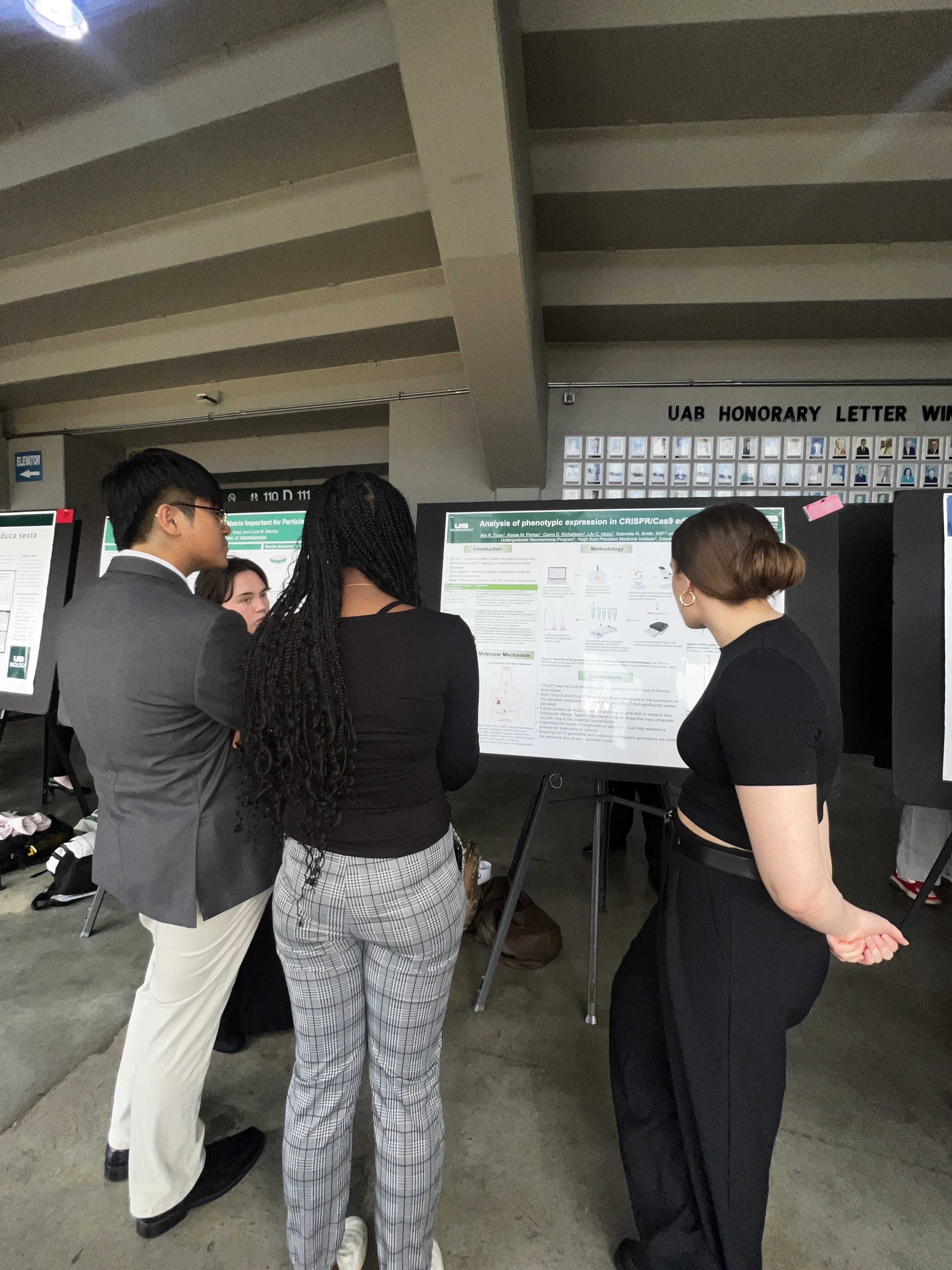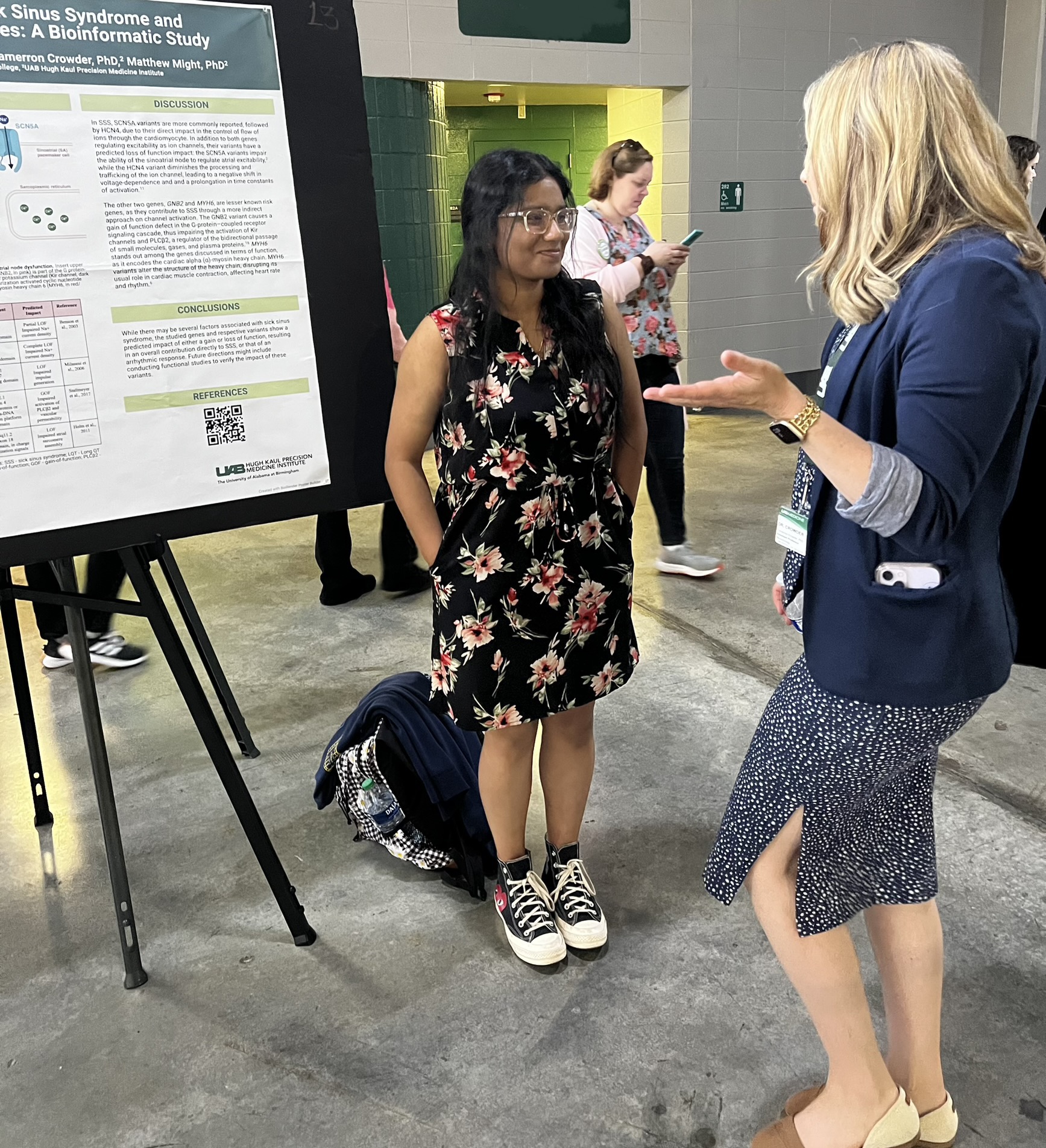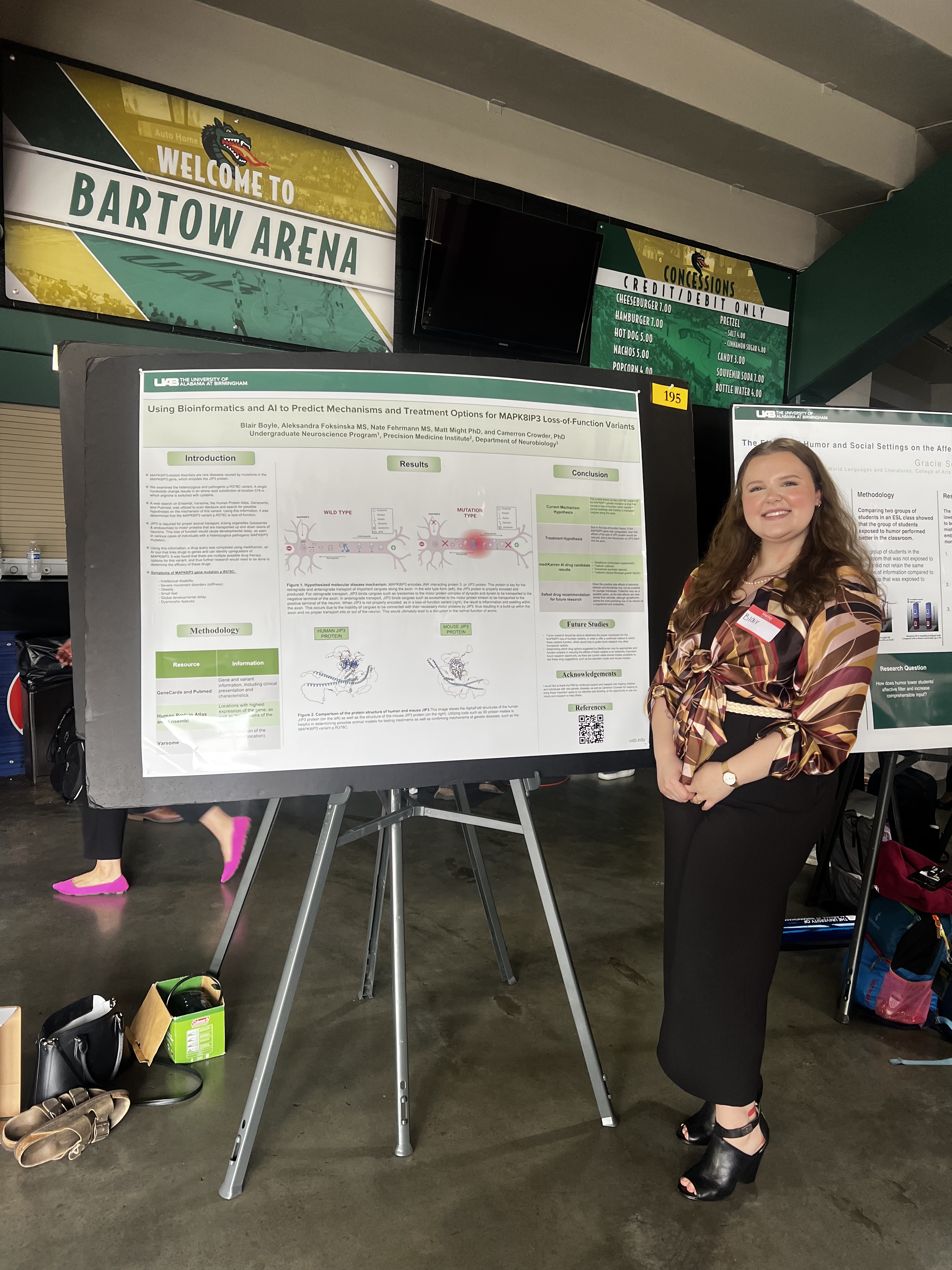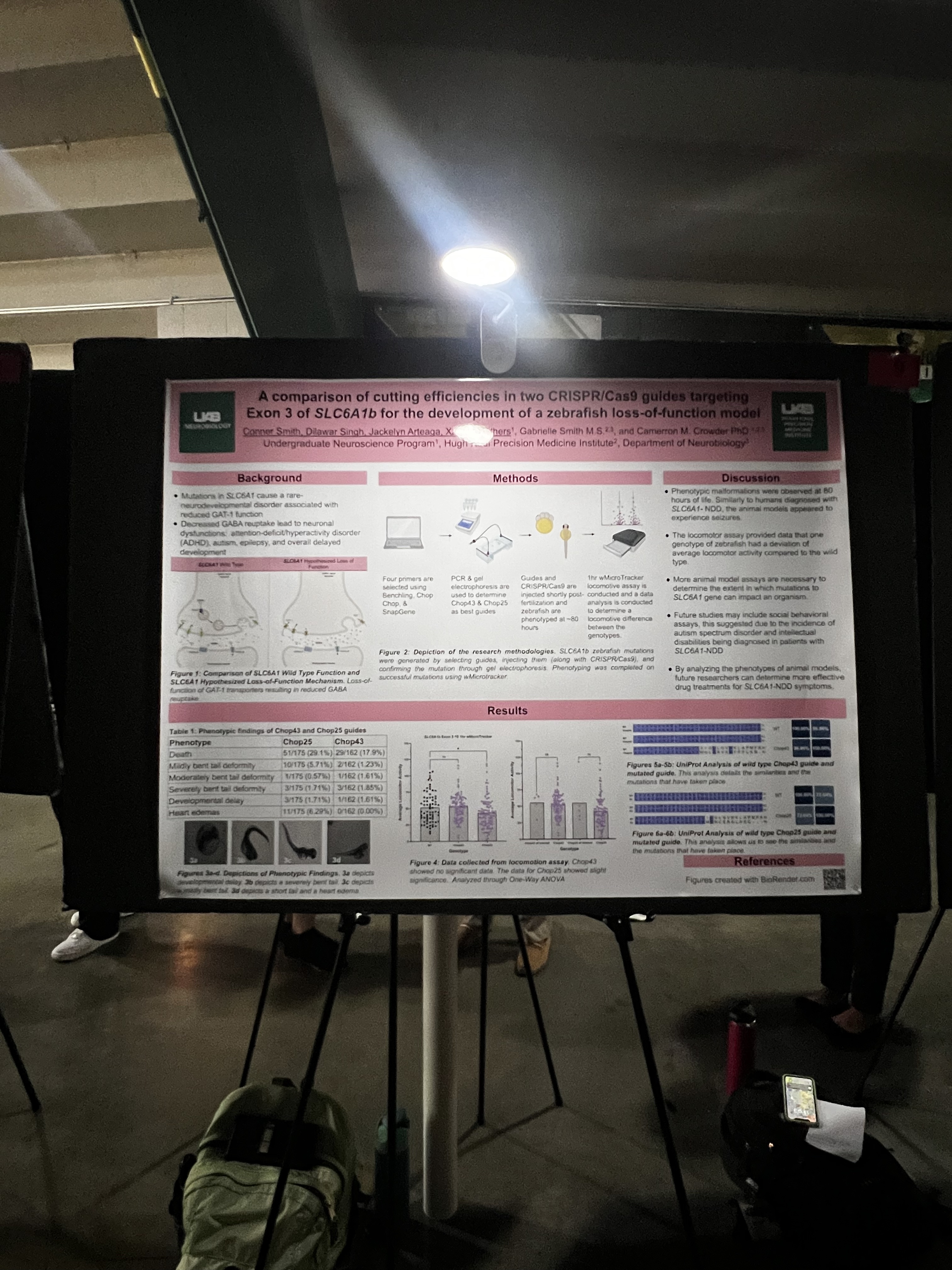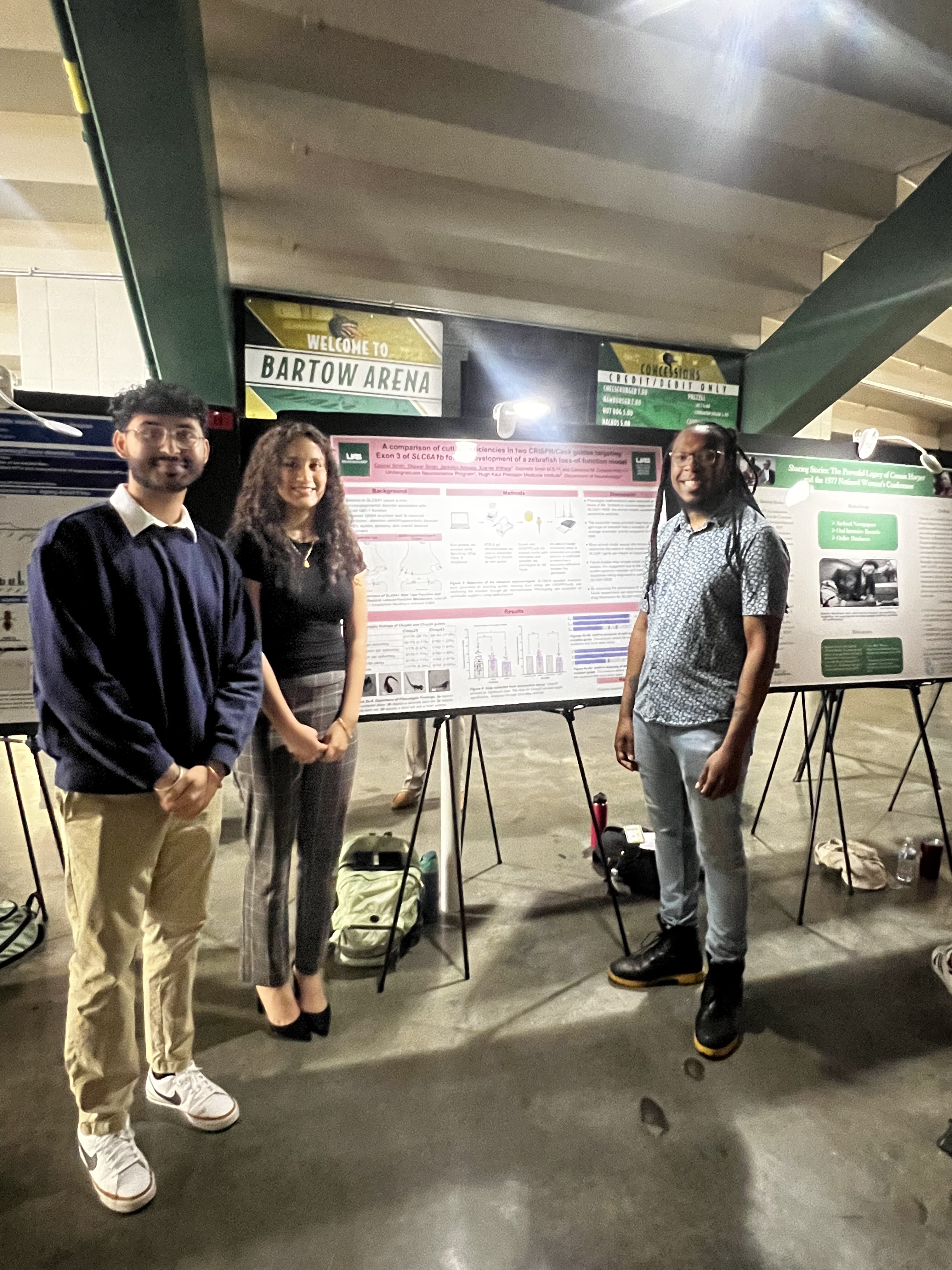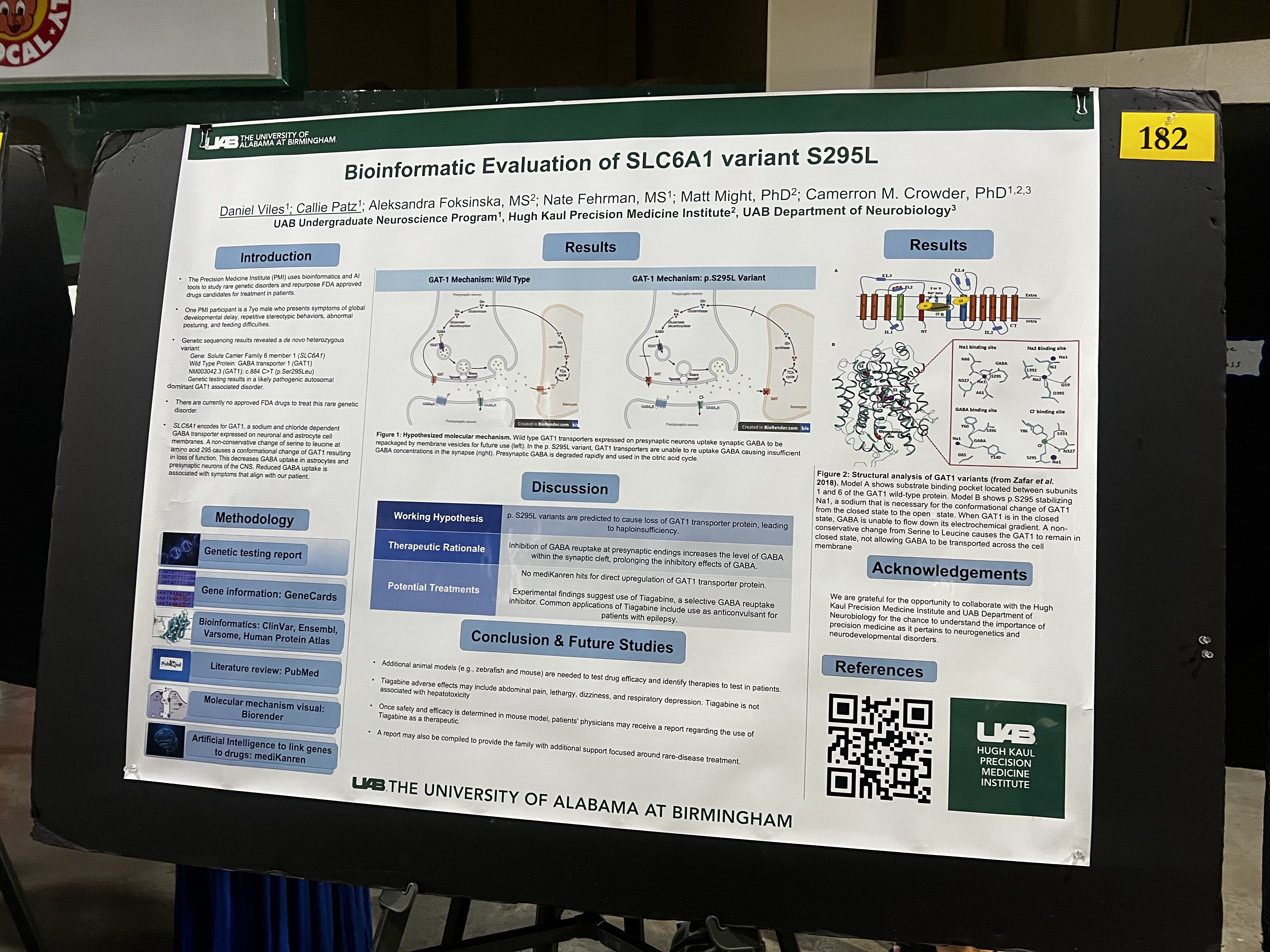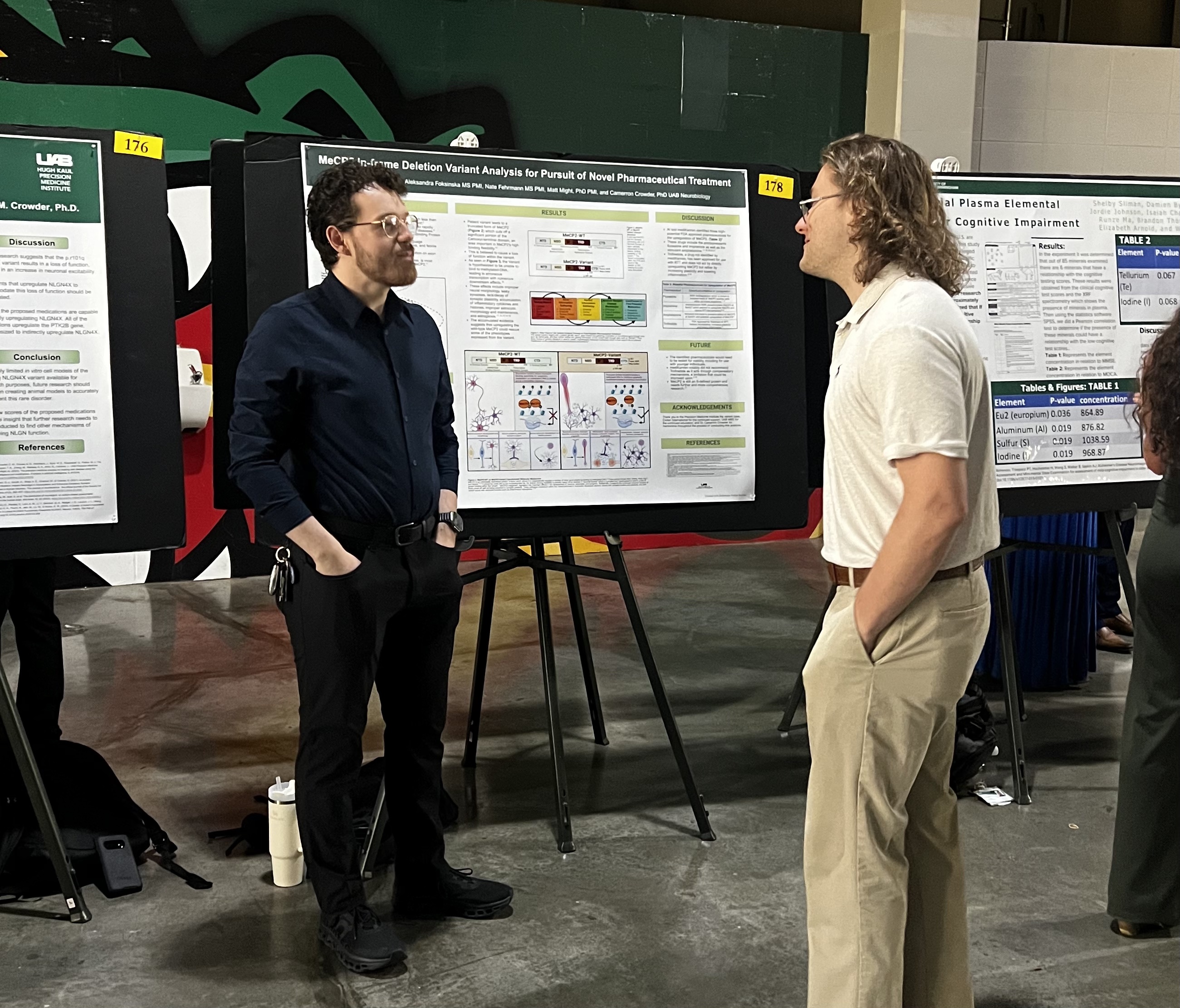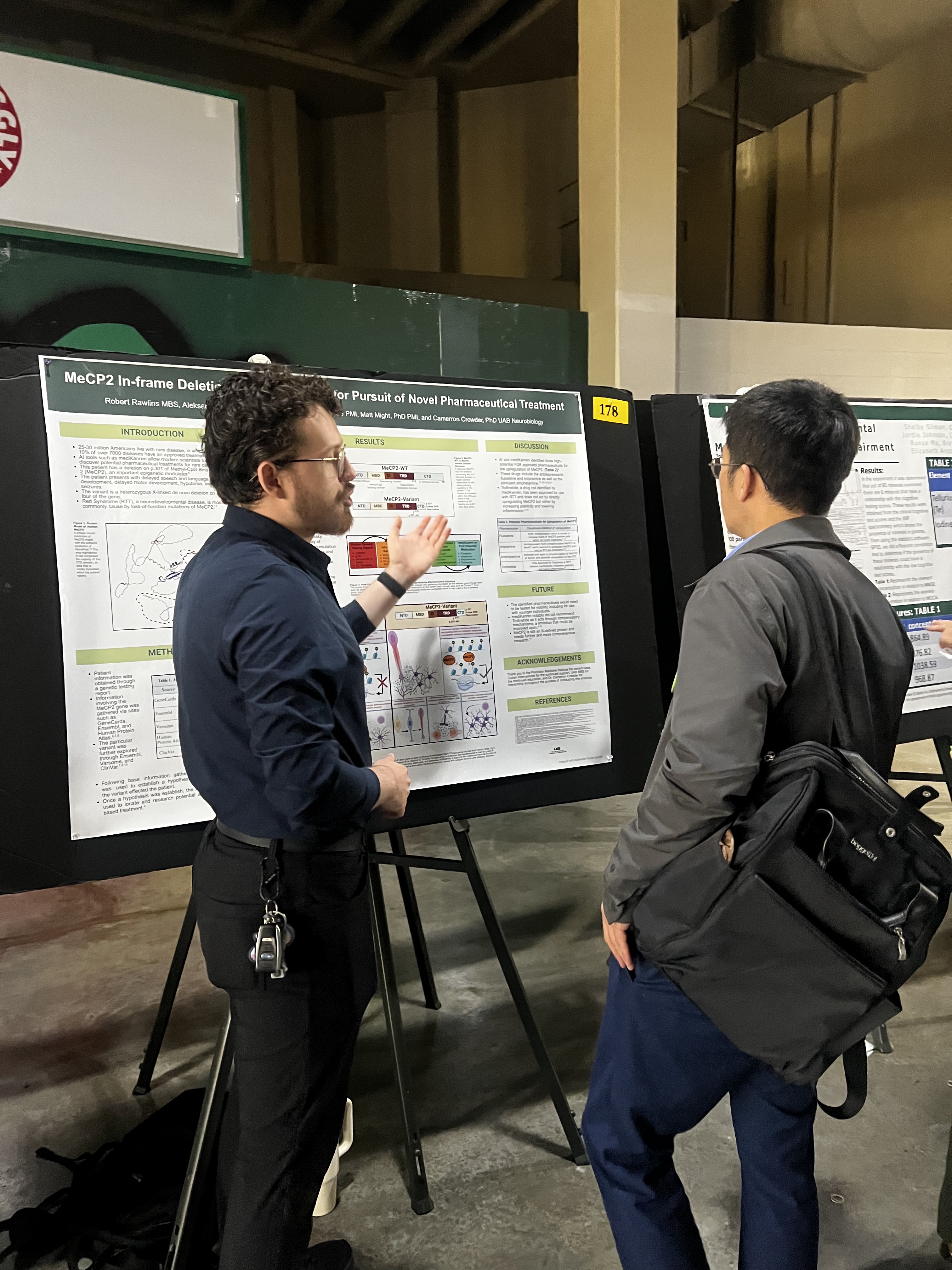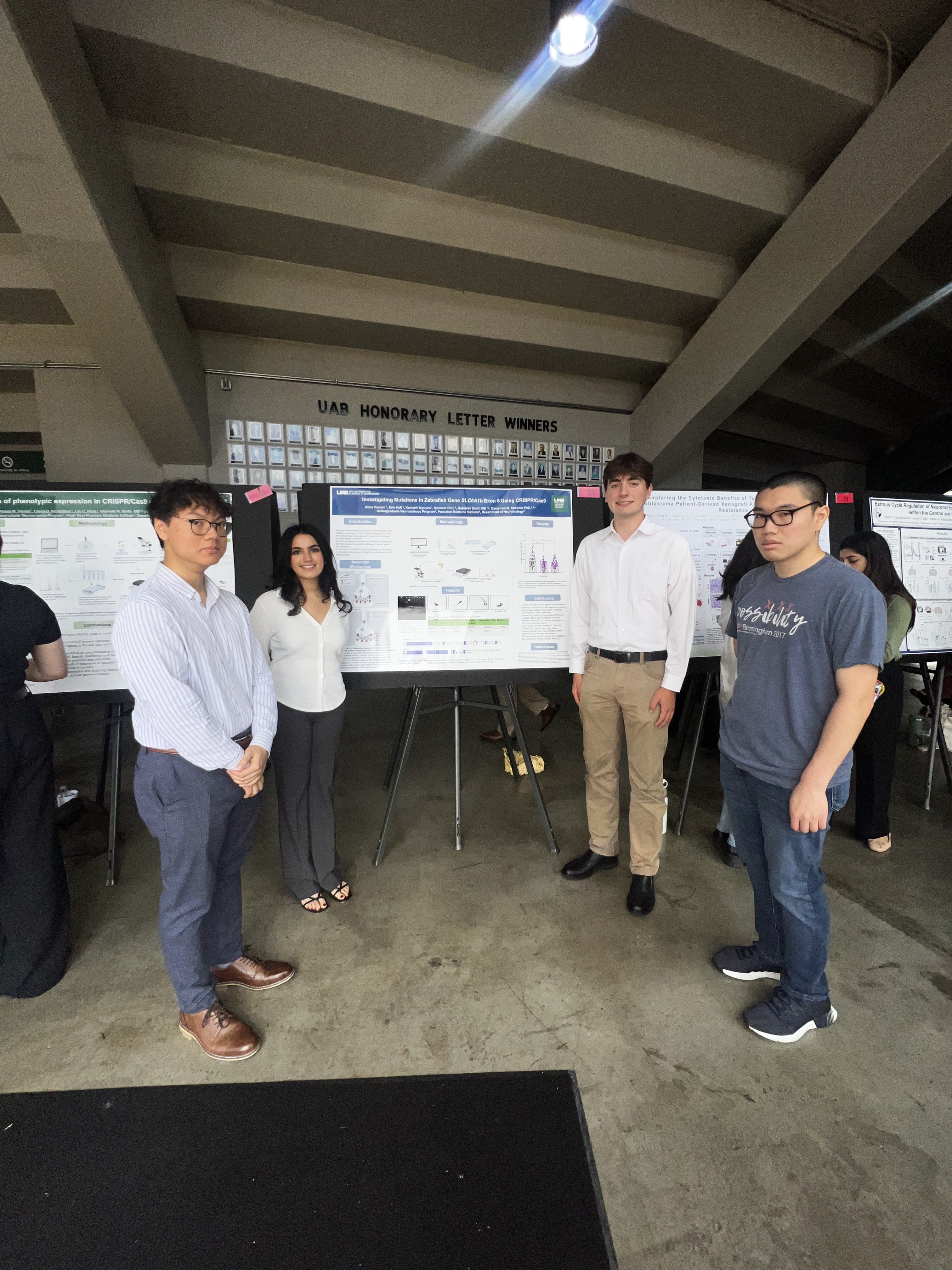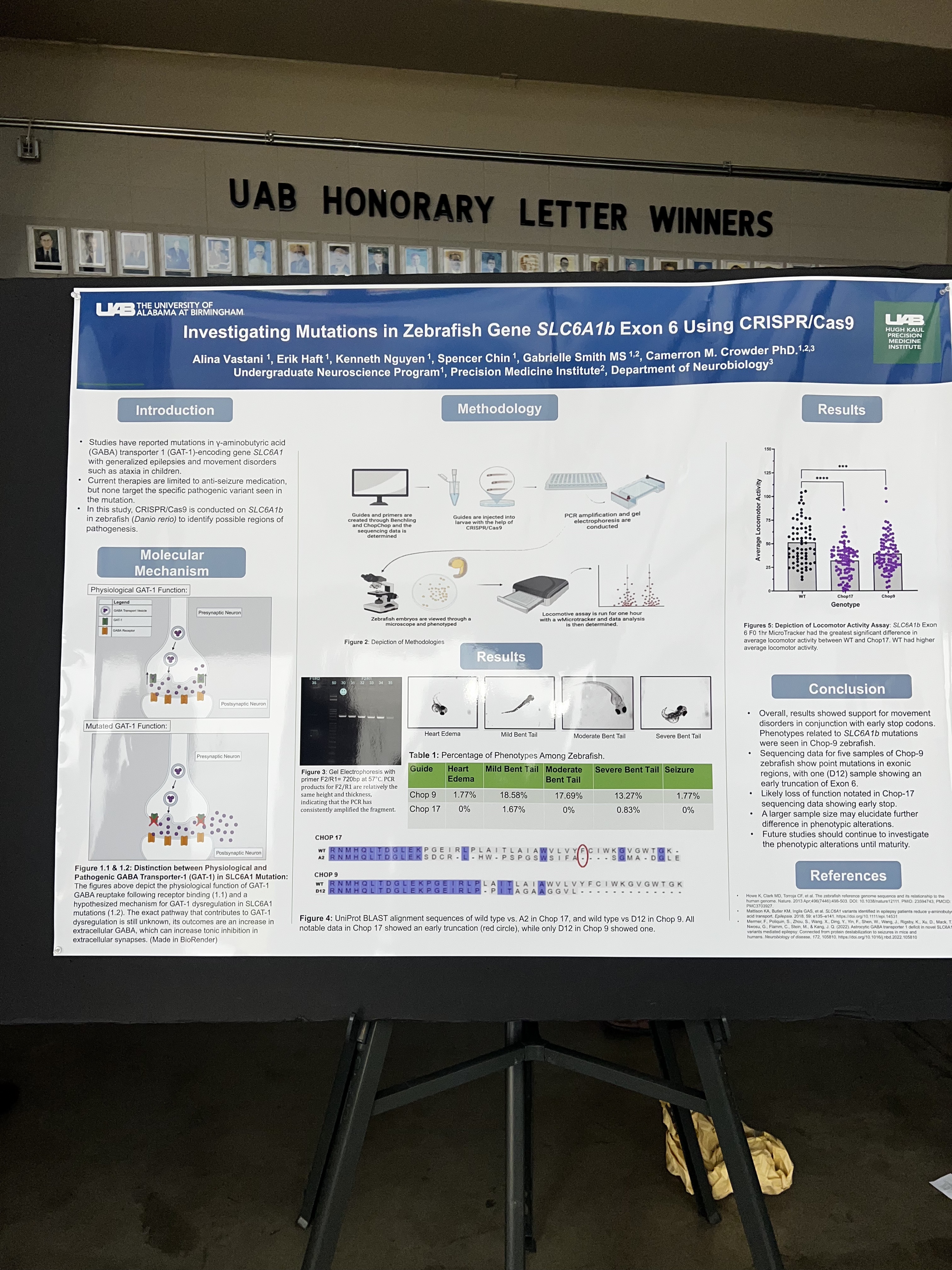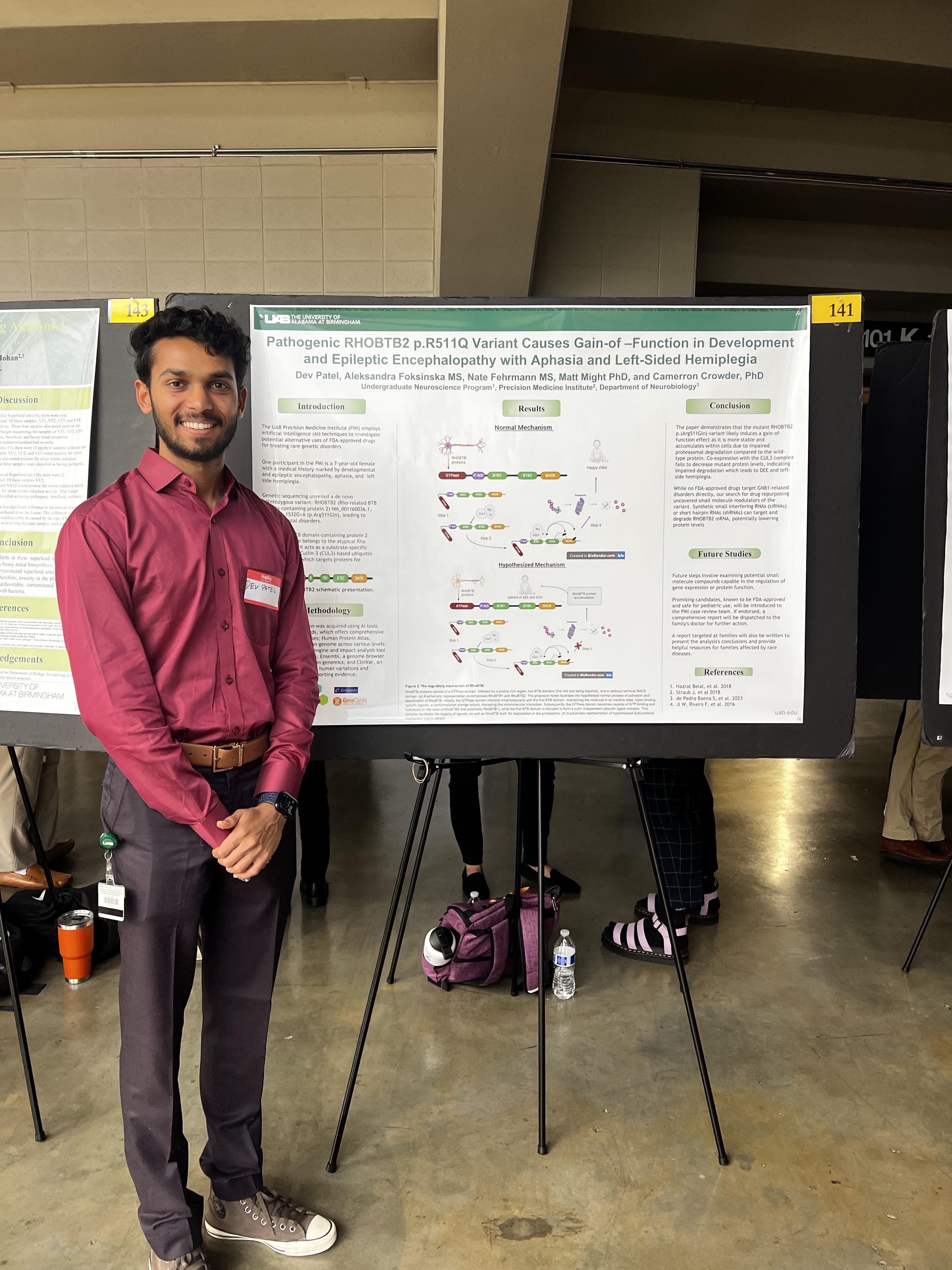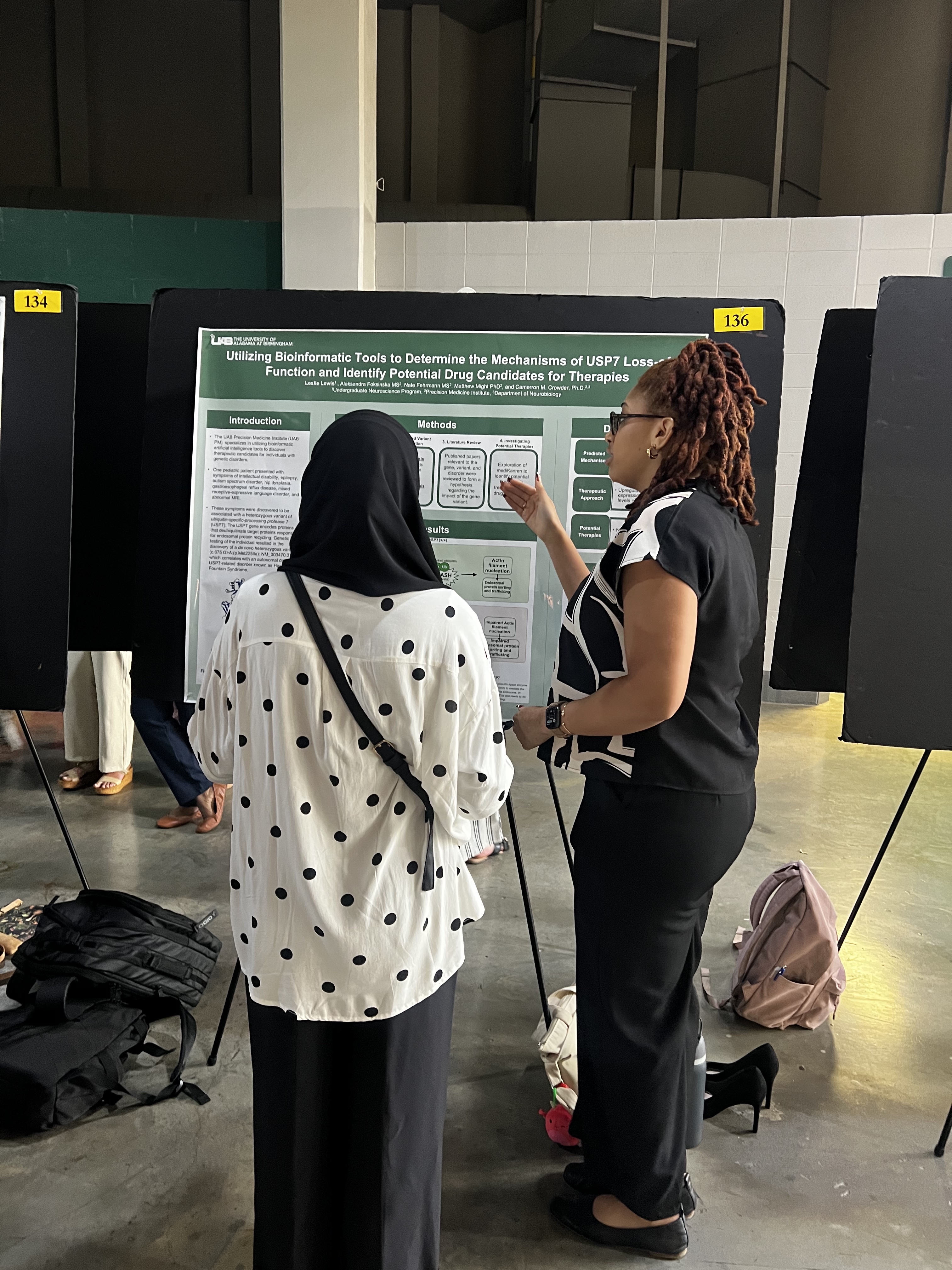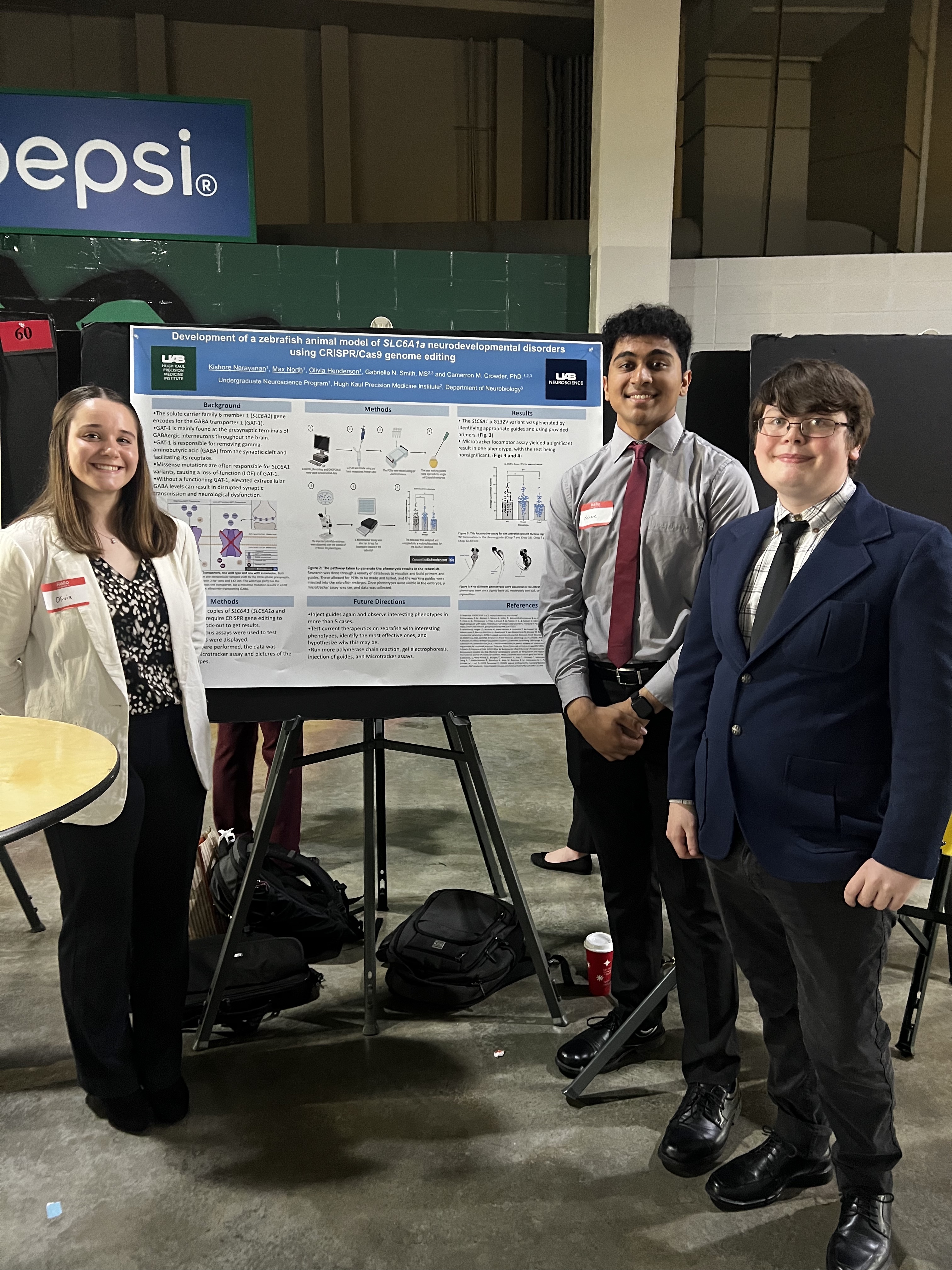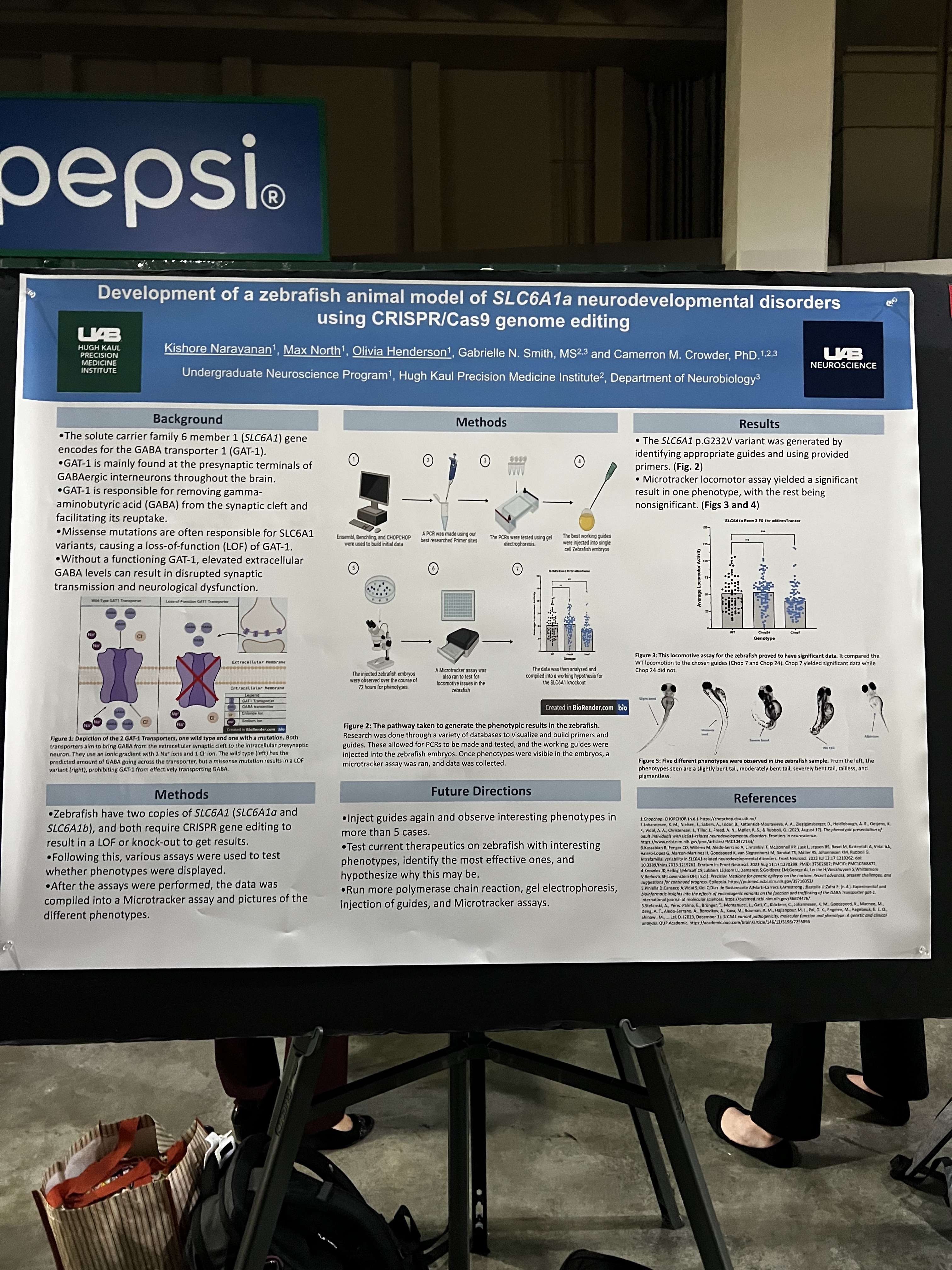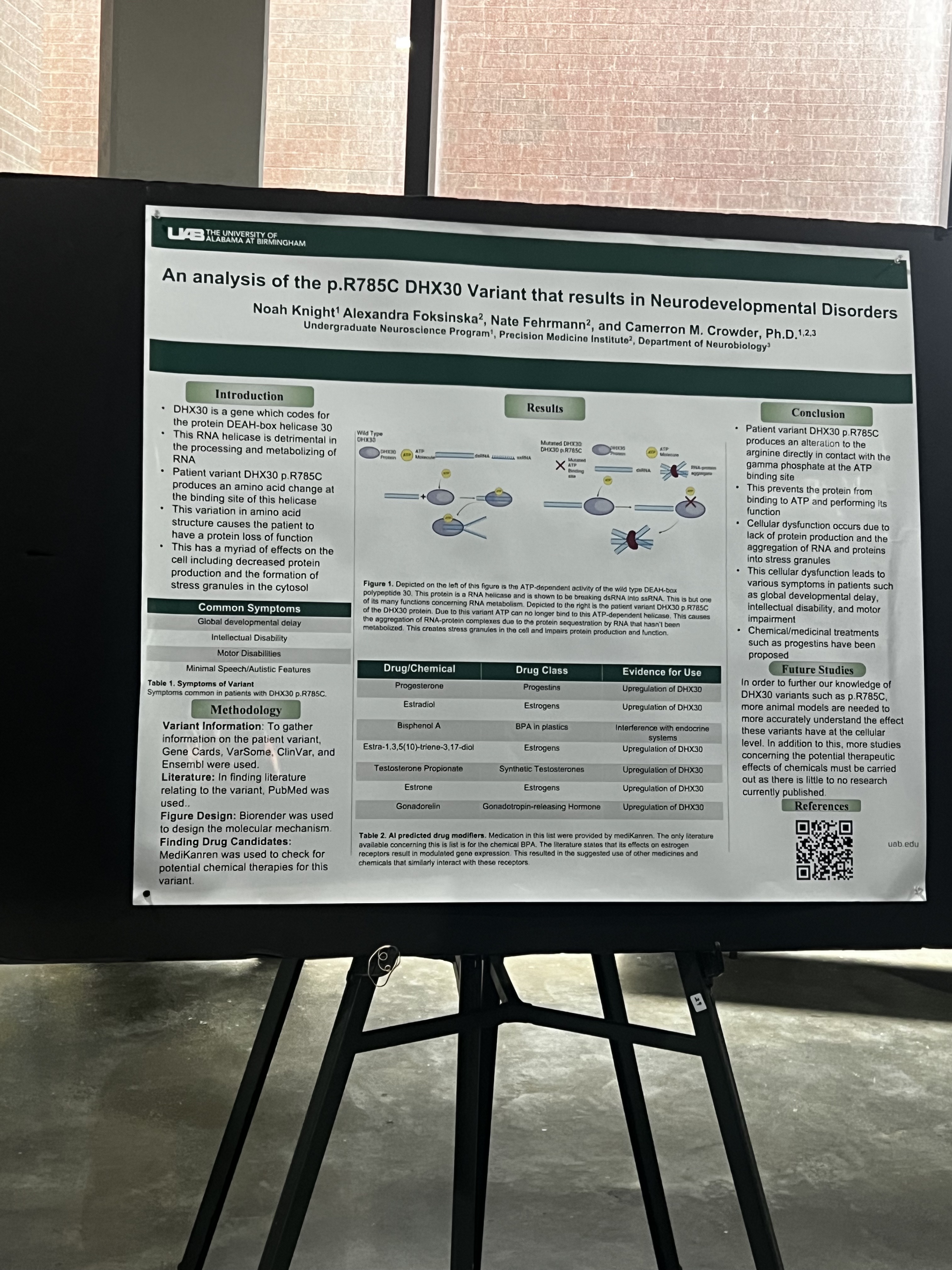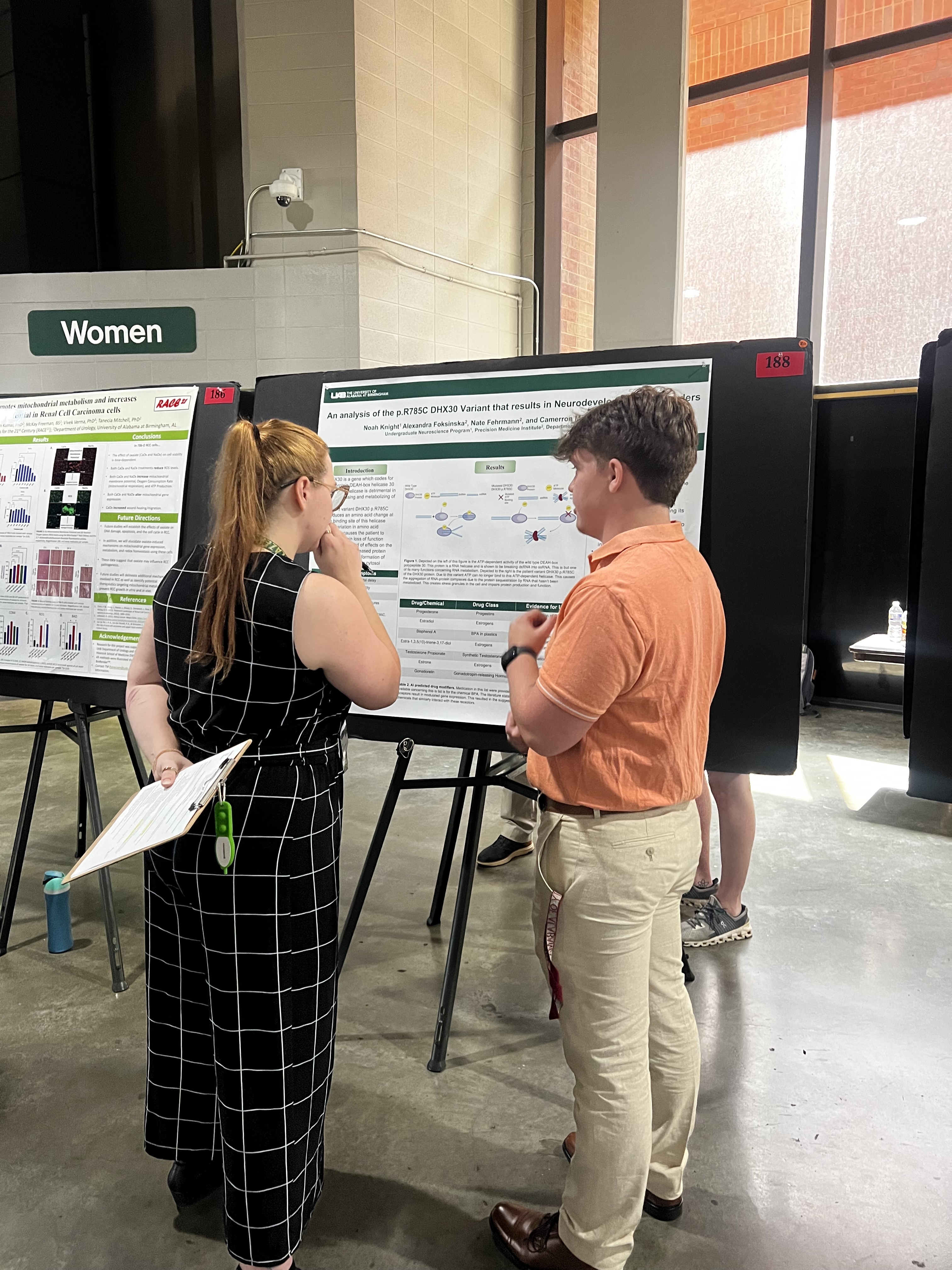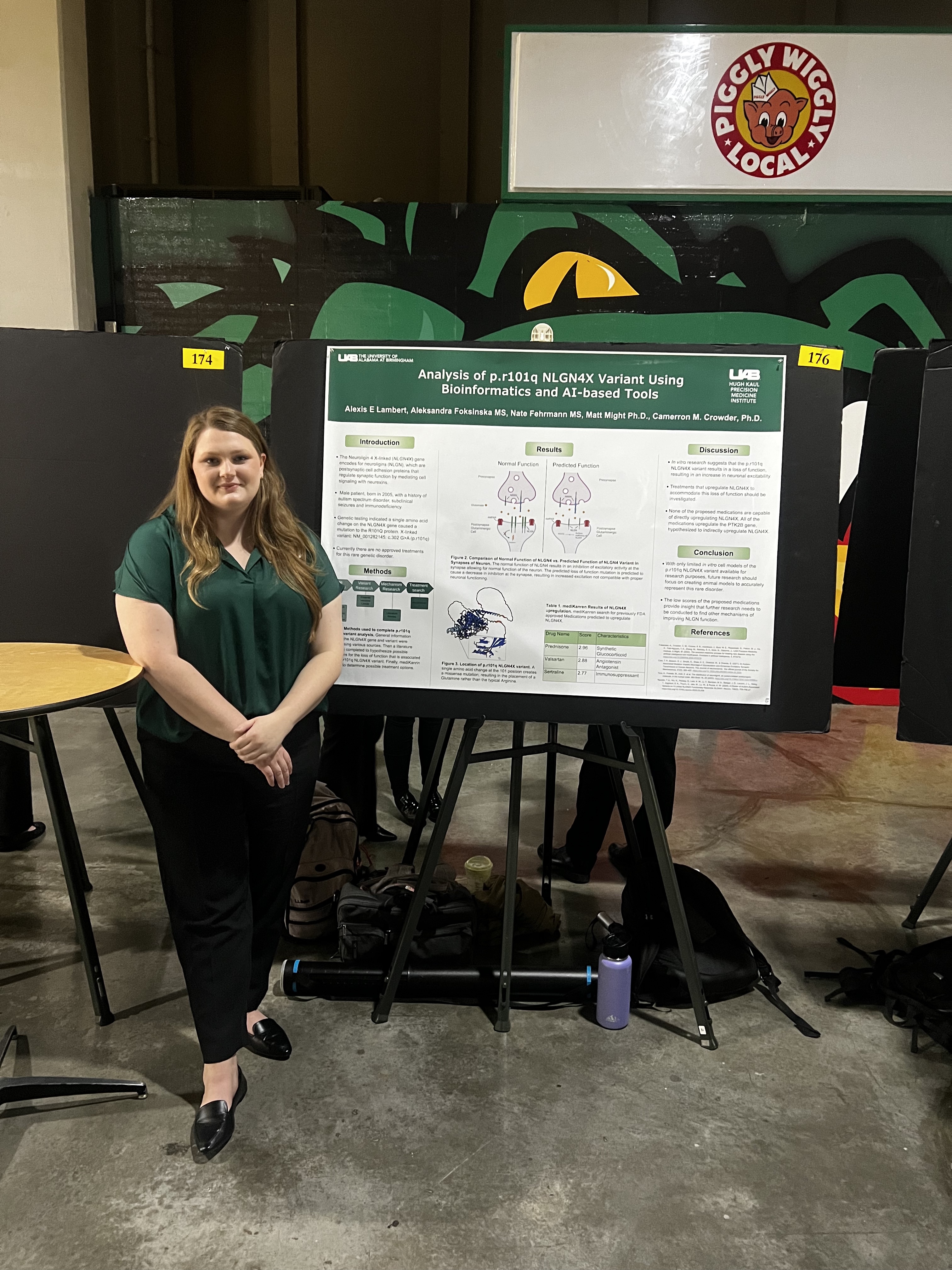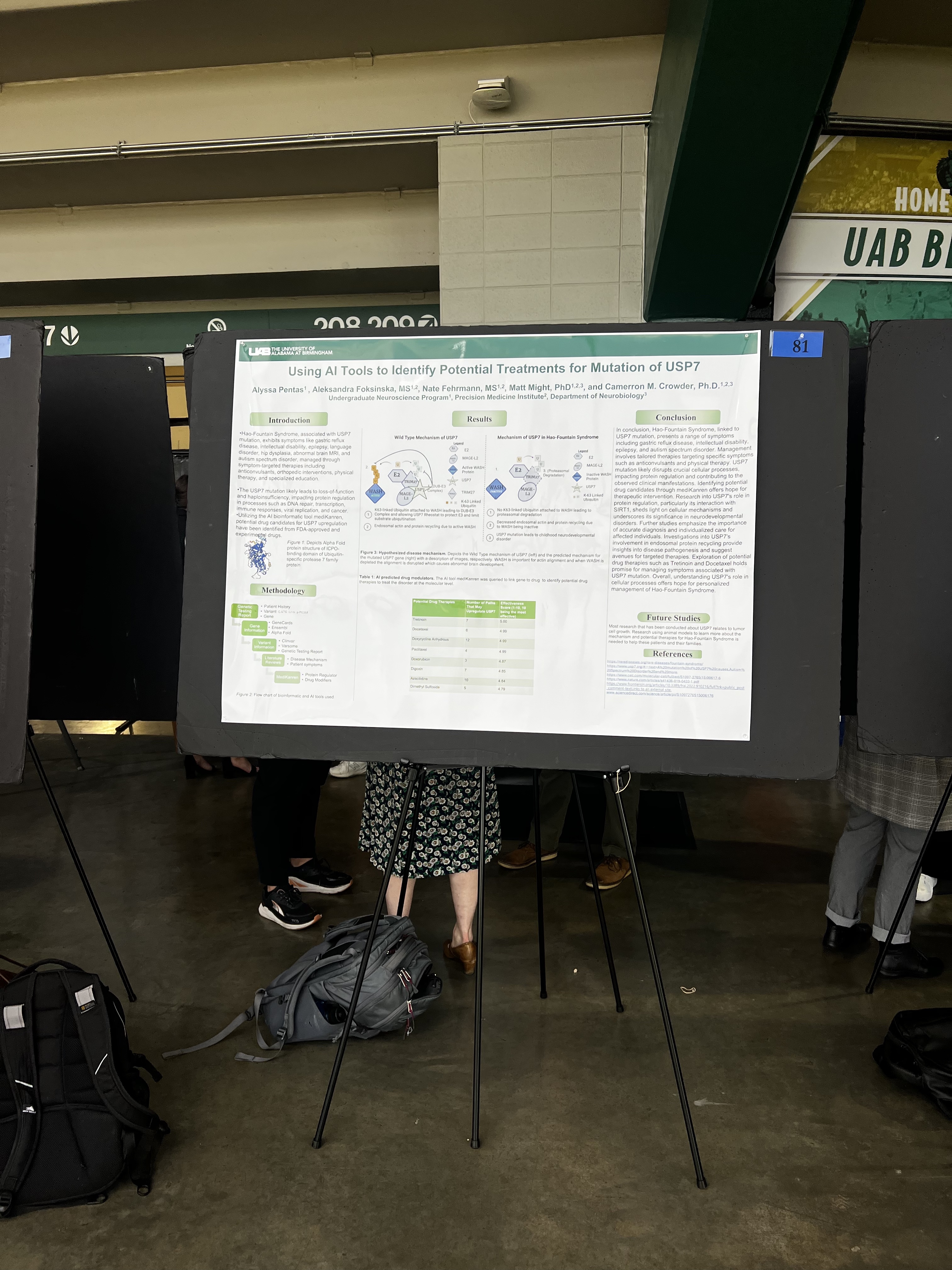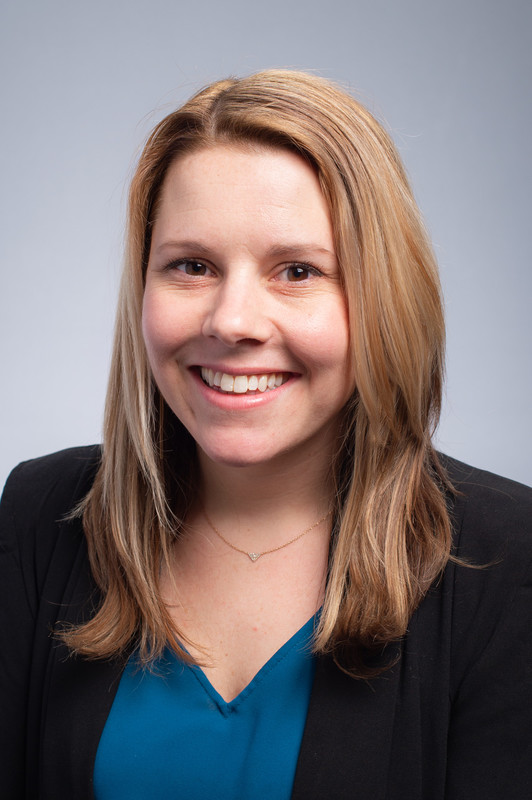 Camerron Crowder, Ph.D.Camerron Crowder, Ph.D., assistant professor in the UAB Department of Neurobiology and assistant director of the Hugh Kaul Precision Medicine Institute (PMI), offers a unique research opportunity for undergraduate students by teaching the PMI research process, how to develop animal models, and the use of artificial intelligence to identify treatment options through courses in the Undergraduate Neuroscience Program.
Camerron Crowder, Ph.D.Camerron Crowder, Ph.D., assistant professor in the UAB Department of Neurobiology and assistant director of the Hugh Kaul Precision Medicine Institute (PMI), offers a unique research opportunity for undergraduate students by teaching the PMI research process, how to develop animal models, and the use of artificial intelligence to identify treatment options through courses in the Undergraduate Neuroscience Program.
The institute, led by Matt Might, Ph.D., uses data science, bioinformatics, and artificial intelligence, to assess and develop therapeutic strategies for treatment of rare genetic disorders including neurological diseases, cancer, and diabetes. Using the PMI approach, Crowder brings PMI cases into her classroom and laboratory and teaches students how to develop patient-guided precision zebrafish models to study rare neurodevelopmental diseases. In her research, she works closely with patient families, clinicians, PMI analysts, and other researchers to review different patient cases to determine molecular disease mechanisms and identify therapies, including drug repurposing and gene therapies.
"Dr. Crowder's innovative approach to incorporating PMI cases into undergraduate neurosciences courses is truly unique,” said Might, director of the Hugh Kaul Precision Medicine Institute. “Moreover, by engaging students in real-world precision medicine research, we're not only advancing our understanding of rare genetic disorders but also inspiring the next generation of researchers.”
Currently, Crowder teaches two course-based research experience (CURE) classes in the Undergraduate Neuroscience Program–NBL 240: Intro Neuro Methods and NBL 400: Neurogenetics. Both courses have a prominent research component while Neurogenetics also encompasses a service-learning aspect.
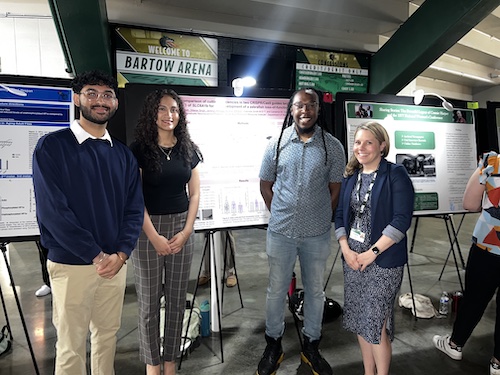 Intro to Neuro Methods students Dilawar Singh, Jackelyn Arteaga, and Xzavier Withers pose in front of their research poster with Dr. Camerron Crowder.
Intro to Neuro Methods students Dilawar Singh, Jackelyn Arteaga, and Xzavier Withers pose in front of their research poster with Dr. Camerron Crowder.
“A distinction of these courses is that students actually have the opportunity to help patients by making an animal model of the patient’s unique disorder and identify drugs that could be repurposed for treatment,” said Crowder. “Allowing students the opportunity to conduct meaningful research that impacts the lives of others not only brings hope to the patients and their families, but also motivates the students to go the extra mile.”
In Intro to Neuro Methods, students focus on an individual patient case and learn how to use gene editing technology called Clustered Regularly Interspaced Short Palindromic Repeats (CRISPR)/Cas9 to make a genetically edited zebrafish model of the patient’s disorder. Throughout the semester, students use bioinformatic tools to design, develop, and test CRISPR guides to identify the best sites to target in zebrafish animal models and then collect genotypic and phenotypic data on their guides. In place of a final exam, students analyze their findings and present posters on their research at the UAB Student Expo.
Students in Neurogenetics have the opportunity to participate in both undergraduate research and service-learning, supported by a Faculty Fellowship in Service-Learning that Crowder received through UAB’s Office of Service-Learning and Undergraduate Research, ultimately helping her develop the service-learning component of the course. Students are guided through the PMI process and conduct research by analyzing a genetic testing report–each student takes on a unique patient’s case, developing a molecular mechanism describing the impact of the patient mutation, and plugging that information into PMI’s artificial intelligence software, mediKanren, which allows users to quickly link together drugs to genes, or genes to disease. Patient families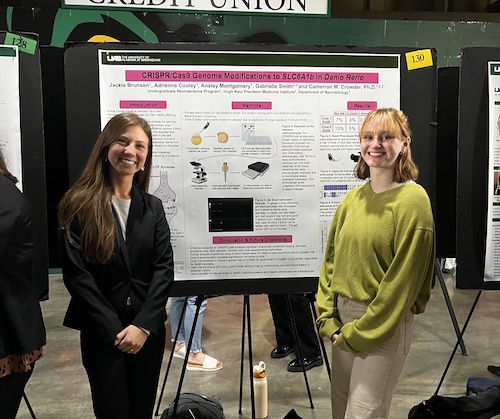 Students Adrienne Cooley and Jackie Brunson present their research from Intro to Neuro Methods at the 2024 Spring Student Expo. interested in participating share the story of their child’s genetic disorder, including medical history and challenging symptoms, to assist students in analyzing the case and better linking the genetic mutation to finding therapies to treat the patient’s unique symptoms.
Students Adrienne Cooley and Jackie Brunson present their research from Intro to Neuro Methods at the 2024 Spring Student Expo. interested in participating share the story of their child’s genetic disorder, including medical history and challenging symptoms, to assist students in analyzing the case and better linking the genetic mutation to finding therapies to treat the patient’s unique symptoms.
“Beyond their educational aims, these courses offer hope to patient families, through the dedication and fresh perspectives of our students,” said Might. “Furthermore, this initiative helps spread awareness about PMI's mission and the power of precision medicine in developing targeted therapies for complex conditions."
In addition to presenting their findings at a university student expo, students also share their research with their community partner, Civitan International, in a separate poster presentation.
Civitan International, founded in 1917, works to support people with developmental disabilities and helps fund the Civitan International Research Center (CIRC) at UAB, where Crowder serves as an associate scientist. The CIRC, directed by Drs. Craig Powell and Cassandra Newsom, is an interdisciplinary center dedicated to improving lives through neurodevelopmental research and the prevention and treatment of developmental disabilities.
“The groundbreaking undergraduate laboratory courses taught by Dr. Crowder directly involve our UAB undergraduate students in the creation of novel genetic zebrafish animal models for understanding various genetic causes of intellectual and neurodevelopmental disorders that affect children and their families around the world,” says Powell, who also serves as chair of the UAB Department of Neurobiology. “Not only does this lead to screening of therapeutic drugs identified through 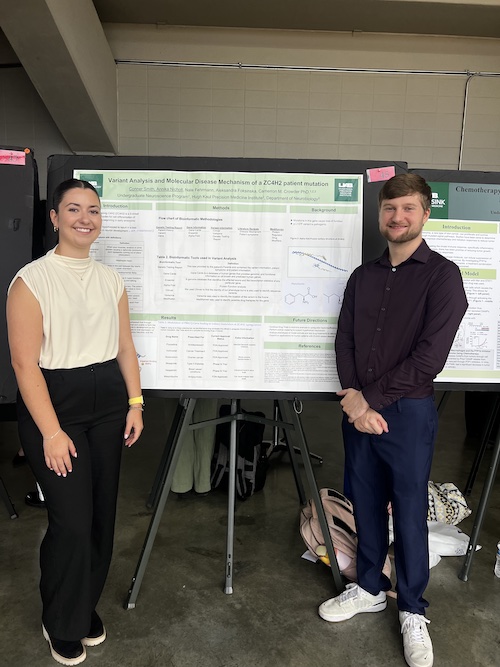 Students Annika Nicholl and Conner Smith from Neurogenetics pose in front of their research poster at the 2024 Spring Student Expo.large-language models, but it also gives hands-on experience in how research laboratories advance the forefront of neuroscience, our understanding of the brain, and how to identify novel therapies for such neurodevelopmental disorders.”
Students Annika Nicholl and Conner Smith from Neurogenetics pose in front of their research poster at the 2024 Spring Student Expo.large-language models, but it also gives hands-on experience in how research laboratories advance the forefront of neuroscience, our understanding of the brain, and how to identify novel therapies for such neurodevelopmental disorders.”
The service-learning portion of this course, made possible through CIRC’s partnership, is a key element that Crowder is proud to offer.
“An important part of the Neurogenetics course is the service-learning aspect,” says Crowder. “Our students get to present their work and research to their peers as well as Civitan International. Combining what our students learn with meaningful community service and civic engagement helps emphasize the importance of their work and adds in a reflective process to their learning.”
At the conclusion of the course, students reflect on similarities and differences between presentations, what they have learned, and how the course prepared them for their next steps in research, educational pursuits, or professional careers.
“Dr. Crowder’s classes are invaluable to our students in the Neuroscience program,” says Cristin Gavin, Ph.D., associate dean for Biomedical Programs at the Heersink School of Medicine and associate professor of Neurobiology. “Not only are the students observing the contributions of basic science research to health care, they are actually the ones doing it.”
According to Gavin, building this appreciation as flourishing practitioners is key to maintaining collaboration between science and medicine across their careers.
“Dr. Crowder is recognized as an exceptional educator and mentor to our students; they have emphasized her patience, enthusiasm, and attention to detail as notable strengths that make the science accessible,” says Gavin. “Her mentorship at the bench is vital.”
Students from the Spring 2024 Intro to Neuro Methods and Neurogenetics courses present at UAB’s 2024 Spring Expo.



